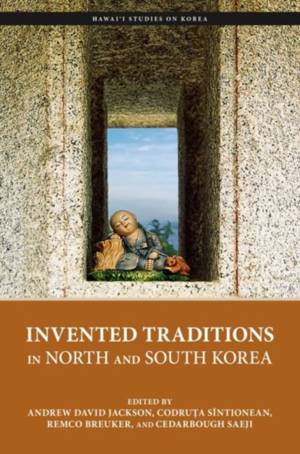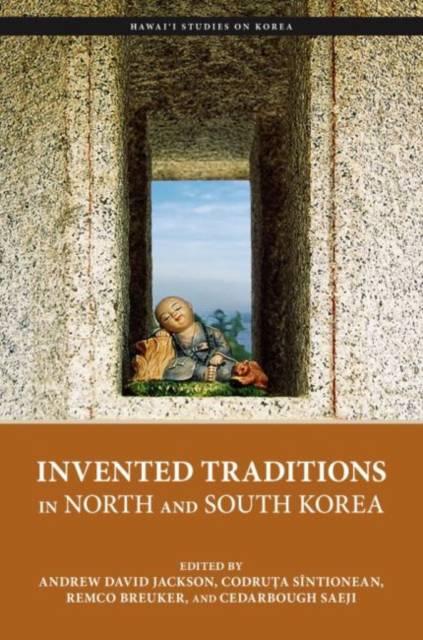
- Retrait gratuit dans votre magasin Club
- 7.000.000 titres dans notre catalogue
- Payer en toute sécurité
- Toujours un magasin près de chez vous
- Retrait gratuit dans votre magasin Club
- 7.000.0000 titres dans notre catalogue
- Payer en toute sécurité
- Toujours un magasin près de chez vous
Invented Traditions in North and South Korea
Don Baker, Remco Breuker, Jan Creutzenberg, Keith Howard, Andrew David Jackson, Laurel KendallDescription
Almost forty years after the publication of Hobsbawm and Ranger's The Invention of Tradition, the subject of invented traditions--cultural and historical practices that claim a continuity with a distant past but which are in fact of relatively recent origin--is still relevant, important, and highly contentious. Invented Traditions in North and South Korea examines the ways in which compressed modernity, Cold War conflict, and ideological opposition has impacted the revival of traditional forms in both Koreas. The volume is divided thematically into sections covering: (1) history, religions, (2) language, (3) music, food, crafts, and finally, (4) space. It includes chapters on pseudo-histories, new religions, linguistic politeness, literary Chinese, p'ansori, heritage, North Korean food, architecture, and the invention of children's pilgrimages in the DPRK.
As the first comparative study of invented traditions in North and South Korea, the book takes the reader on a journey through Korea's epic twentieth century, examining the revival of culture in the context of colonialism, decolonization, national division, dictatorship, and modernization. The book investigates what it describes as "monumental" invented traditions formulated to maintain order, loyalty, and national identity during periods of political upheaval as well as cultural revivals less explicitly connected to political power. Invented Traditions in North and South Korea demonstrates that invented traditions can teach us a great deal about the twentieth-century political and cultural trajectories of the two Koreas. With contributions from historians, sociologists, folklorists, scholars of performance, and anthropologists, this volume will prove invaluable to Koreanists, as well as teachers and students of Korean and Asian studies undergraduate courses.Spécifications
Parties prenantes
- Auteur(s) :
- Editeur:
Contenu
- Nombre de pages :
- 426
- Langue:
- Anglais
- Collection :
Caractéristiques
- EAN:
- 9780824890506
- Date de parution :
- 31-08-22
- Format:
- Livre broché
- Format numérique:
- Trade paperback (VS)
- Dimensions :
- 152 mm x 229 mm
- Poids :
- 692 g

Les avis
Nous publions uniquement les avis qui respectent les conditions requises. Consultez nos conditions pour les avis.






